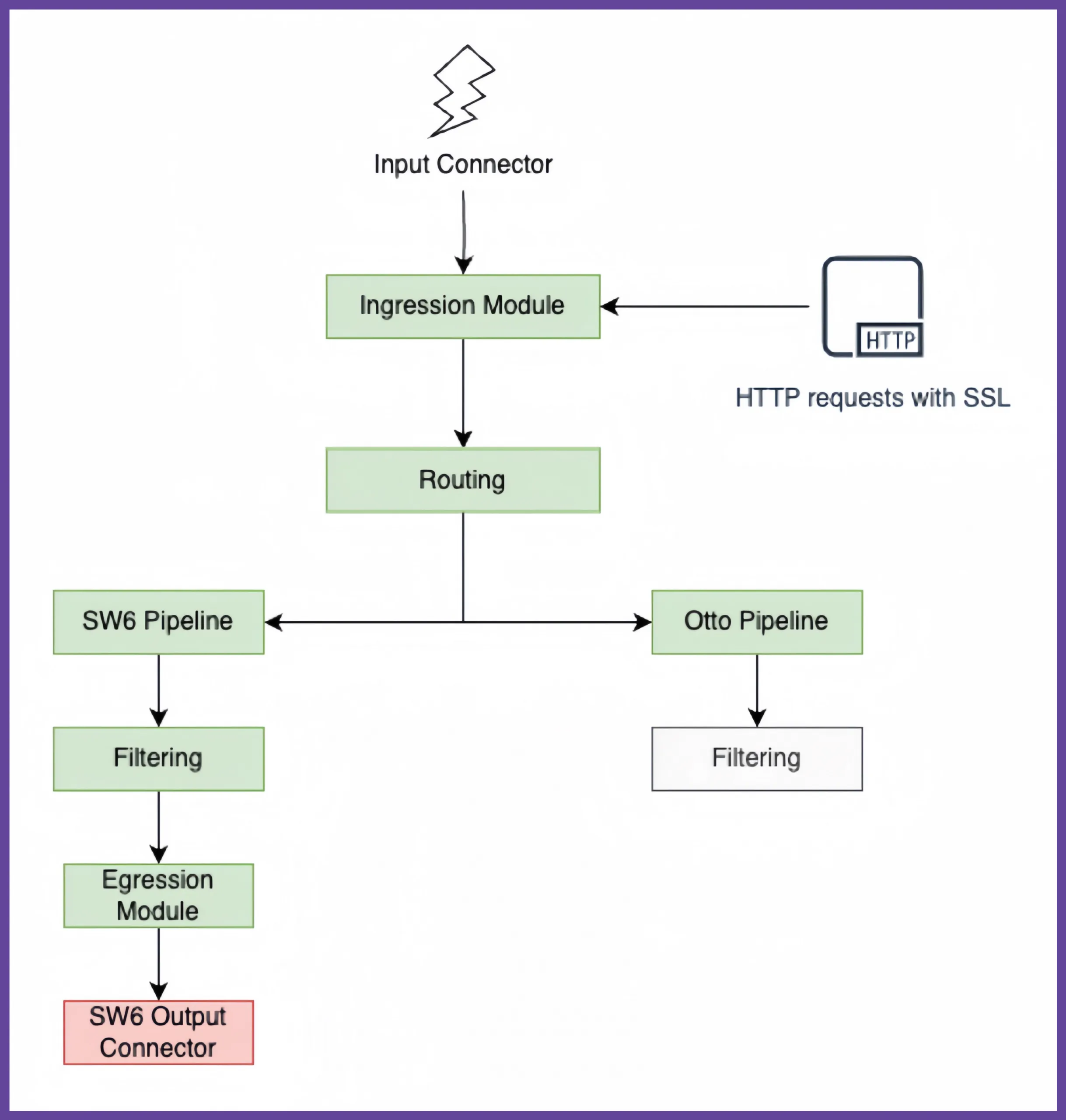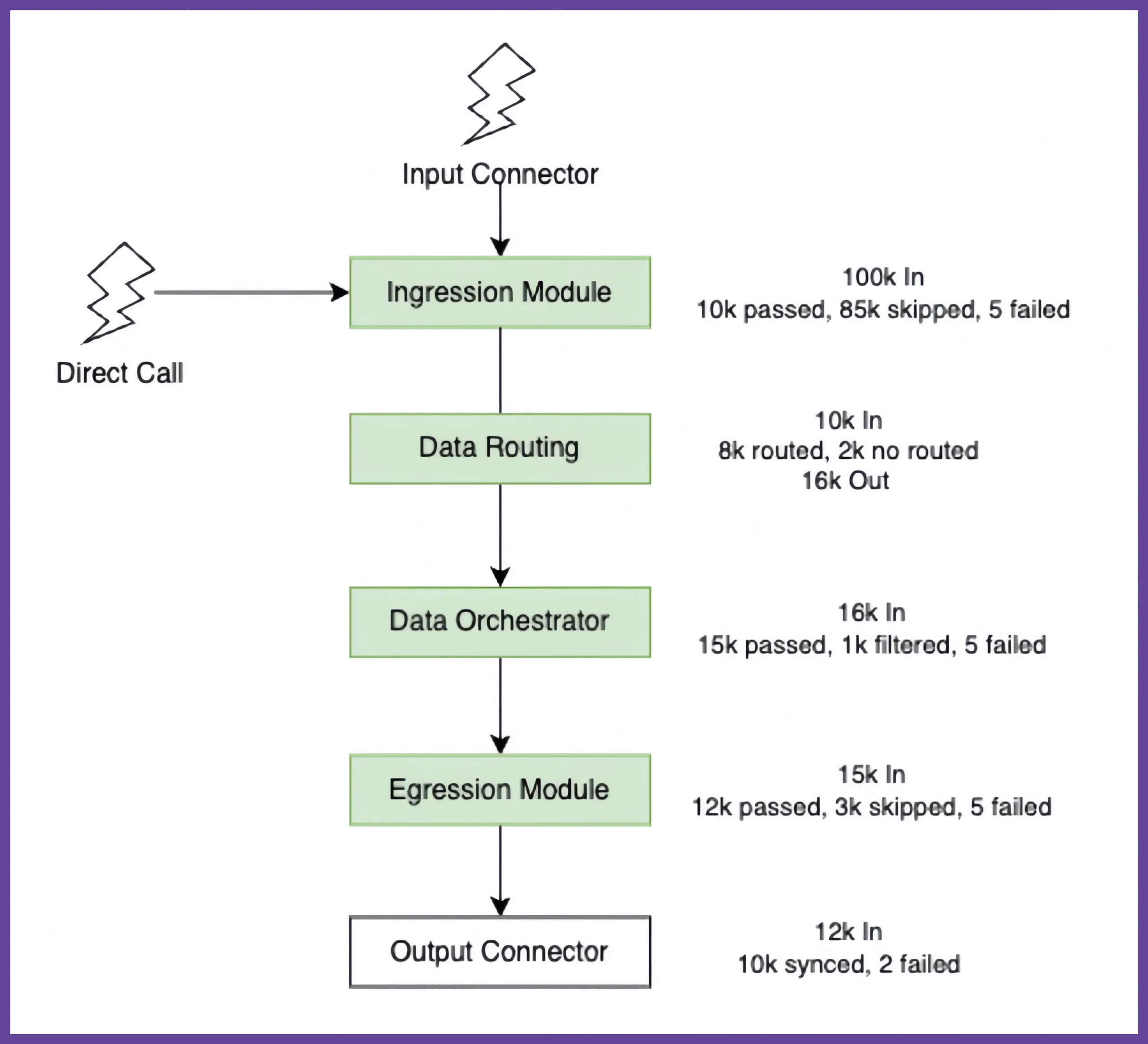Have you ever stared helplessly at a loading screen, wondering if your online order is hurtling through the internet at breakneck speeds or stuck in some digital traffic jam? Well, for E-commerce businesses, that feeling can be amplified tenfold when it comes to managing data flow. Imagine a labyrinthine network of conveyor belts, with products (data objects) zipping towards different destinations. But instead of packages, you have cryptic error messages and a nagging suspicion that something might be going wrong somewhere.
Understanding where these objects are, their current status and any potential roadblocks becomes crucial for optimizing efficiency and identifying issues. This is precisely where Qilin.Cloud’s Data Flow Tracking (DFT) shines. No more metaphorical traffic jams or cryptic error messages – just clear visibility and peace of mind.
What is Data Flow Tracking?
Data Flow Tracking (DFT) is a robust module designed to monitor and record the status of all objects as they transit through the Qilin.Cloud system. It not only tracks successful deliveries but also logs any errors or exceptions, providing detailed information on where and why these issues occur. Think of it as a digital logbook meticulously documenting each object’s lifecycle, this level of transparency is essential to ensure data integrity and and troubleshoot any issues efficiently.
The Power of Insightful Records
For a Qilin.Cloud user, understanding the exact status of objects as they move through the system is crucial. Imagine you are managing an extensive e-commerce platform with thousands of transactions occurring every hour. Knowing the status of each object – whether it has been successfully delivered, encountered an error, or is still in transit – can significantly enhance your operational efficiency and customer satisfaction. DFT empowers users to pinpoint the exact cause and location of these discrepancies.
With DFT, you can:
- Monitor Object Status: Track the progress of each object in real-time, from ingestion to egression.
- Identify and Troubleshoot Errors: Quickly pinpoint where errors or exceptions occur and understand the reasons behind them.
- Query Data Efficiently: Retrieve objects based on their IDs, timestamps, or types, enabling precise data management.
- Generate Insights: Analyze transaction data to derive valuable insights and make informed decisions.
The Idea Behind DFT
The core idea of DFT is to create a comprehensive log of object transactions at every stage of processing. This enables Qilin.Cloud to reconstruct the lifetime of an object within the system. For example, if an object fails at the ingress stage due to a validation mismatch or is filtered out by a specific predicate, these details are meticulously recorded. This logging mechanism is independent of other modules, ensuring that DFT functions seamlessly without disrupting the overall system performance.
Furthermore, its utilization of MongoDB as the underlying database ensures scalability and robust data storage capabilities, perfectly suited for handling massive data volumes associated with high-traffic E-commerce operations.

Leveraging Data for Strategic Advantage
Beyond offering unparalleled object-level visibility, DFT empowers users to translate transaction records into valuable statistics. Imagine being able to instantly visualize the number of objects processed within a specific timeframe. This empowers businesses to:
- Identify Bottlenecks: By analyzing object processing volumes at different stages, businesses can pinpoint potential bottlenecks within their workflows, allowing for targeted optimization efforts.
- Optimize Resource Allocation: Armed with insights into object processing trends, businesses can effectively allocate resources to ensure smooth and efficient operation.
- Cost-Benefit Ratio Calculation: By understanding which processing step requires which underlying resource (and its associated costs), you can determine the total costs incurred for a process. This insight helps optimize your personalized cost-benefit strategy.
- Predict Future Resource Needs: DFT’s historical data can be leveraged to forecast future workload and resource requirements, enabling proactive capacity planning and cost management.

A Glimpse into the Data Model
The Data Flow Tracking (DFT) feature in Qilin.Cloud is designed meticulously to provide comprehensive insights into the movement and status of data objects as they pass through the system. To achieve this, DFT uses several key models:
1. Transaction Model: This model tracks each individual data object, recording its journey and various metadata. It captures details like the object’s unique ID, creation and update times, and status.
2. Transaction Progress Model: This model provides an overview of the data object’s progress through different stages, from initial input to final processing. It helps in understanding how far along the process each object is.
3. Transaction Block Progress Model: This model offers a more detailed view, showing the status of each step within the overall process. It records whether each step was successful, failed, or skipped.
4. Transaction Block Model: This model focuses on specific segments or blocks of the data object’s journey, noting important details and any exceptions that occur.
These models collectively ensure that every movement and status change of data objects within Qilin.Cloud is meticulously tracked and documented, providing businesses with a clear and actionable overview of their data processes.
Share your Qilin.Cloud Success Story
Building with Confidence: Leveraging DFT for Developers and Businesses
For Developers:
DFT offers a valuable toolkit for developers building on the Qilin.Cloud platform. Here’s how:
- Debugging Made Easy: Encountering an unexpected error within your custom code? DFT’s granular tracking helps pinpoint the exact location and cause of the issue, streamlining the debugging process.
- Enhanced Testing: Simulate various data flows and object interactions to rigorously test your applications, ensuring exceptional performance and robustness.
- Building Confidence: With DFT at your disposal, you can confidently develop and deploy applications, knowing that you have complete oversight of object processing behavior.
For Businesses:
Beyond the technical advantages, DFT offers significant benefits for businesses of all sizes:
- Compliance and Auditability: Maintain detailed transaction logs for regulatory compliance purposes and ensure a clear audit trail for every object traversing the platform.
- Improved Customer Experience: By proactively identifying and addressing potential errors, businesses can minimize disruptions and ensure a seamless customer experience.
- Peace of Mind: DFT fosters trust and confidence in the platform’s reliability, knowing that every object is meticulously tracked and accounted for.
Conclusion:
Data Flow Tracking serves as a cornerstone of Qilin.Cloud’s commitment to transparency, reliability, and user empowerment. By providing unparalleled visibility into object flow and processing, DFT empowers businesses to operate with confidence, optimize their E-commerce operations, and deliver exceptional customer experiences. We invite you to explore the power of DFT and discover how it can transform your business on the Qilin.Cloud platform.
Ready to Get Started?
For developers seeking to delve deeper into DFT and its functionalities, comprehensive documentation and code examples are readily available within the Qilin.Cloud developer portal. Additionally, the Qilin.Cloud support team stands ready to answer any questions and assist you in harnessing the full potential of Data Flow Tracking.
We at Qilin.Cloud believe that empowered businesses are successful businesses. Join us on this journey of innovation and unlock the true potential of your E-commerce operations with the power of Data Flow Tracking.

0 Comments